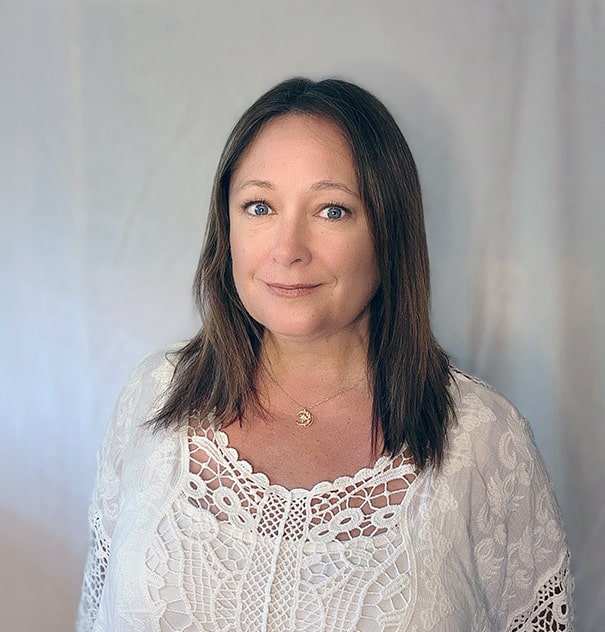Sharing the journey of self-care in the wake of grief is a profoundly transformative experience. When we come together to learn and grow, we create an extraordinary network of compassion and understanding. It's as if our capacity for resilience, healing, and self-care doesn't merely double, but expands exponentially. It's in this shared connection where we recognize our common humanity, and through this mutual recognition, we foster an environment where the alchemy of healing can truly take place.
Picture this, you're sitting alone at home, ensnared in a whirlpool of feelings and thoughts, the shadow of grief casting a long pallor over your life. You know you need to take care of yourself, to seek out healing and balance amidst this hurricane of emotions, but the path feels daunting, impossible to walk alone.
Now imagine the comfort of a guiding hand, a supportive voice, a companion walking this path with you. That’s what I strive to offer in Awaken, my mindfulness-based online grief support group, which now includes regular sessions where members can practice cooperative self-care.
Cooperative Self-Care, Body Doubling, & Co-working
What does 'cooperative self-care' mean? Quite simply, it's the practice of learning and implementing self-care skills in a shared setting - which can be in person or virtual.
I experienced the power of co-working first hand during the pandemic, when a community I belong to started offering two-hour zoom meetings twice a week. Each person shared what they would be working on that day - writing, emailing, designing - and we would check in every hour for a stretch break and to share how things were going.
During the most challenging days, I found solace and support in a method known as 'body doubling.' This concept, commonly used within the ADHD community, involves simply having another person present as you work, even if they're working on their own tasks.
Instead of trying to navigate the labyrinth of healing on your own, you are joined by a partner or a group - someone to lean on and learn with. It’s two souls joining together on a journey of care and compassion, a mutual endeavor to cultivate resilience and acceptance. The unspoken promise to each other to get work done also kept my butt in the chair when it would have been all to easy to do dishes or watch TV.
Compassionate Support & Shared Energy
The presence of another can provide a sense of grounding, helping to channel focus and minimize distraction. The beauty of body doubling is that it not only allows for mutual accountability but also creates a shared energy that can be deeply motivating.
So, whether you're learning new mindfulness skills for grief, journaling, or grappling with focus for work, remember - cooperation can be a powerful tool. It can transform solitude into shared strength, turning even the simplest act of self-care into a communal experience of growth and healing.
Now you might be thinking, "why do I need someone else? Can't I just learn these self-care skills on my own?" Yes, you absolutely can. However, walking this path alongside a partner, a friend, or a support group can be incredibly healing and empowering.
Reasons to Co-work on Self-Care Skills
- Compassionate Understanding: Sharing your experience with someone who is also learning to cope with grief allows for a level of understanding and empathy that is hard to match. They get it, because they’re living it too.
- Mutual Accountability: In a world where it's too easy to make promises to ourselves and then break them when no one is looking, having a partner to hold us accountable can make a real difference. They can gently remind us to eat well, meditate, or simply breathe deeply when we're on the brink of forgetting.
- Synergistic Growth: Learning together often leads to deeper insights. You share your perspectives, challenge each other’s beliefs, and grow together. In doing so, you build a repertoire of skills that might take much longer to develop alone.
- Resilience Through Connection: Human beings are social creatures. Even in our grief, connection can breed resilience. The simple act of communicating our feelings, of being heard and understood, can go a long way in helping us heal.
Developing Self-Care Skills In A Grief Support Group
Awaken is a grief support community designed with all of the above in mind. It's more than just an online grief support group. It's a community of compassionate individuals who've chosen to embrace the power of community while learning to care for themselves.
I understand that everyone's journey with grief is unique, and thus we support a wide range of self-care techniques - from mindful meditation to journaling, from physical movement to quiet reflection. Starting this month, we now have a monthly co-working session as part of the regular schedule.
How To Join Awaken Online Grief Support Group
If you are looking for a caring community to support you as you adapt to life after loss, consider joining me in Awaken. It is a place to share your journey, learn self-care strategies, and find mutual support in navigating the rocky shores of grief.
Embrace the power of cooperative self-care. Remember, you don't have to walk this journey alone. Come, take our hands, and together let's awaken the strength within ourselves to navigate the waves of grief with grace and resilience. Visit meditationforgrief.com to learn more and join us today.


